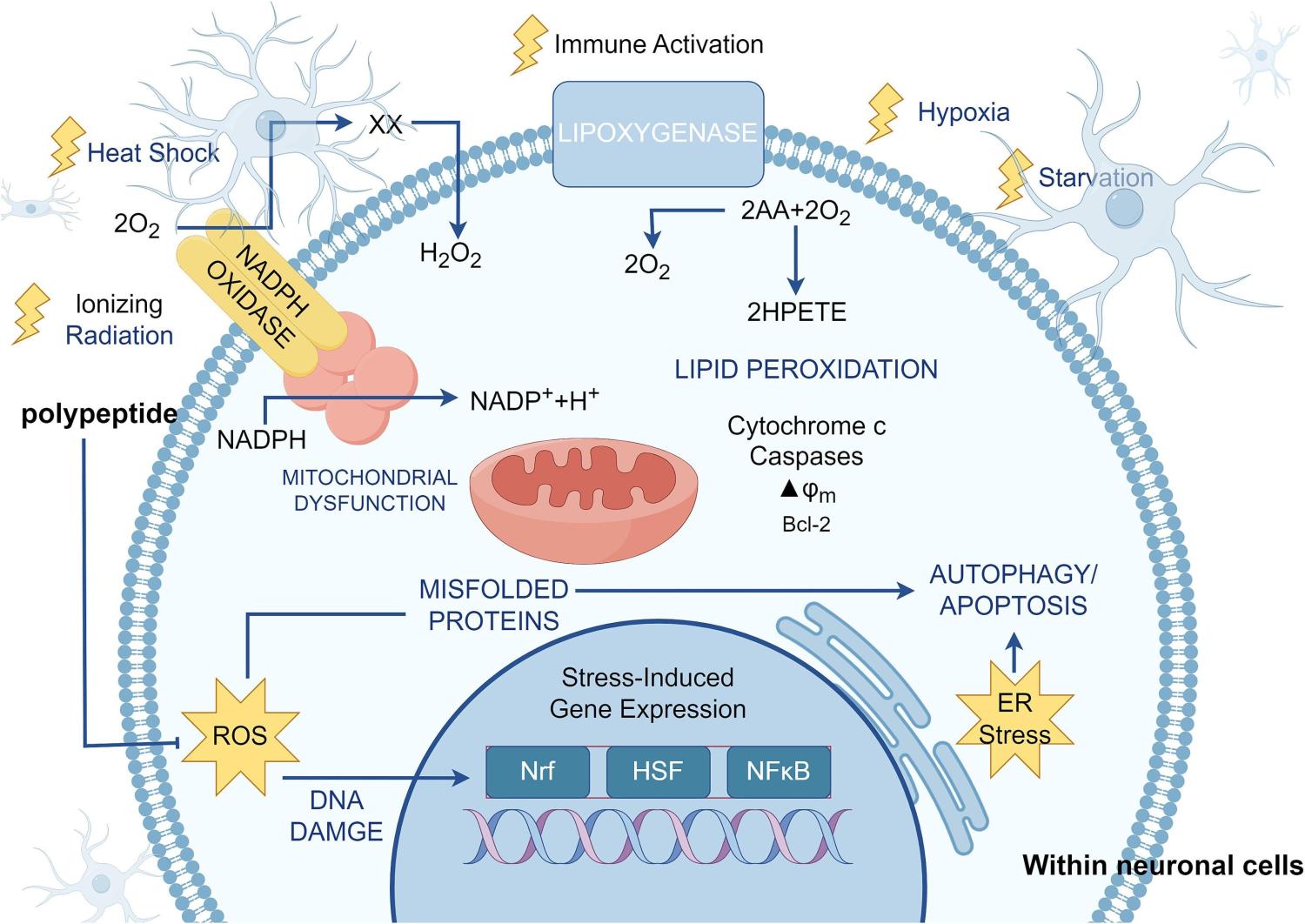
Neurodegenerative diseases are the main causes of death and morbidity among elderly people worldwide. From the pathological point of view, oxidative stress, neuroinflammation, mitochondrial damage and apoptosis are the causes of neuronal diseases, and play a harmful role in the process of neuronal cell death and neurodegeneration. The most common neurodegenerative diseases are Alzheimer's disease(AD) and Parkinson's disease(PD), and there is no effective treatment. The physiological role of active peptides in the human body is significant. Modern medical research has found that animal and plant peptides, natural peptides in human body, can act on the central nervous system, and their active components can improve learning and memory ability, and play the roles of antioxidation, anti-inflammation, anti-apoptosis and maintaining the structure and function of mitochondria. This review reviews the reports on neurodegenerative diseases such as AD and PD by active peptides from animals and plants and natural peptides from the human body, and summarizes the neuroprotective mechanism of peptides. A theoretical basis for further research and development of active peptides was provided by examining the research and application of peptides, which provided a theoretical basis for further research and development.
